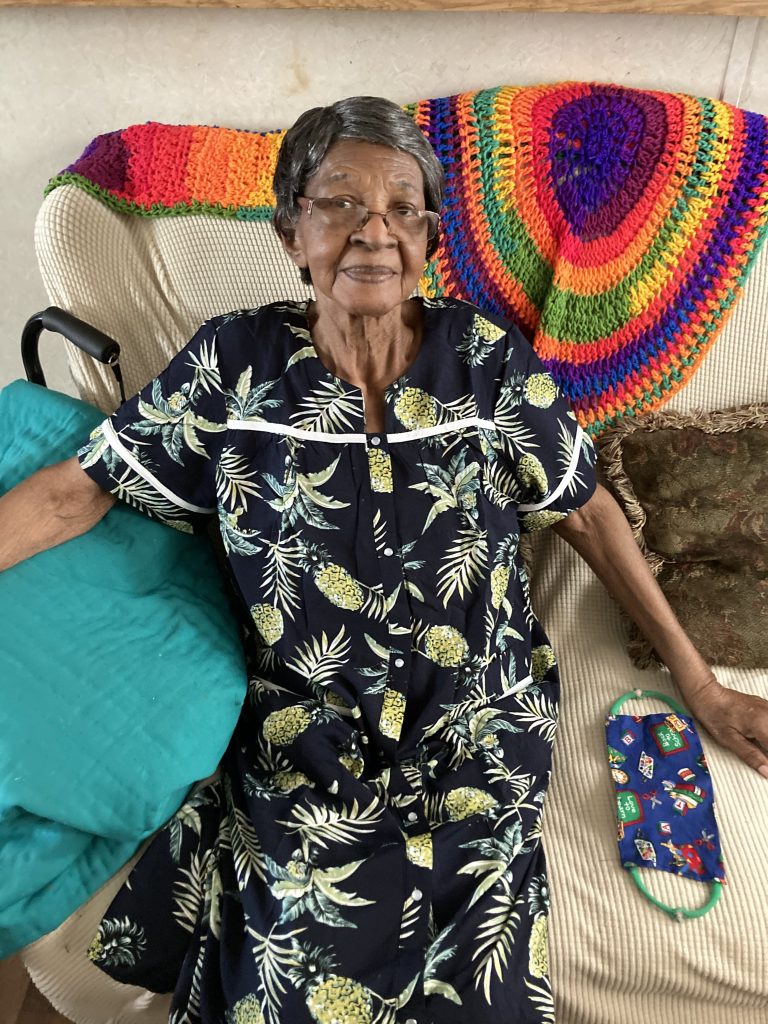In recognition of World Down’s Syndrome Day, Jane Nickels, a Learning Disabilities Admiral Nurse at MacIntyre (a UK based charity that supports people with learning disabilities and/or autism), shares how people with learning disabilities are at an increased risk of developing dementia and how MacIntyre is supporting people with a diagnosis or suspected diagnosis of dementia.

Who is MacIntyre?
MacIntyre provides learning, support and care for more than 1,200 children, young people and adults who have a learning disability and/or autism across England and Wales.
Research
Research shows people with a learning disability, particularly those with Down’s syndrome, are at increased risk of developing dementia, specifically people with Down’s syndrome over the age of 40 and those with a learning disability aged 50 and over.
Over the past five years, the number of people with a learning disability over the age of 65 has doubled. As the learning disability population ages, it is expected that more people with a learning disability will go on to develop dementia.
What is a learning disability?
It is estimated that 1.5 million people in the UK have a learning disability. The term intellectual disabilities is often used in academic research and internationally, however the term learning disability is preferred within the UK
A learning disability affects the way a person learns new things in all areas of life, how they understand information and how they communicate. This can mean a person can have difficulty:
- Understanding new or complex information
- Learning new skills
- Being independent
What a learning disability is not…
A learning disability is not a learning difficulty. A learning difficulty refers to conditions such as dyslexia and dyspraxia. Learning difficulty encompasses conditions that do not affect the way a person learns new things in all areas of life, usually just within a specific area, such as reading or writing.
Learning disabilities and dementia
If a person with a learning disability develops dementia, it is often at a younger age than a person without a learning disability. It is also likely the person will face additional challenges to people who do not have a learning disability.
Some studies have identified that more than 50% of people with Down’s syndrome aged 60 and over are likely to have dementia.
The number of people with a diagnosis of Down’s syndrome currently in the UK is approximately 40,000, and more than 60% will develop Alzheimer’s before the age of 60. These statistics are important when thinking about the need for specialist support in later life.
People with a learning disability are more likely to have additional health and social factors that are known to increase the risk of developing dementia. Research has shown that some types of dementia can be prevented, however, to reduce the risk you often must make lifestyle changes, these changes can be difficult anyway, and it may be more difficult for someone with a learning disability to engage with. For example, someone with a learning disability may have a reduced/poor diet and therefore be more at risk due to their diet, the same person may struggle to adjust their diet or make the changes suggested to reduce the risks.
As we know, dementia isn’t all about memory loss
Dementia signs and symptoms usually develop gradually, but sometimes accelerate rapidly if the person has other health conditions. For people with a learning disability, dementia symptoms may be overlooked and instead, health professionals may see the learning disability first and not the changes we are reporting. This is known as ‘diagnostic overshadowing’.
MacIntyre and dementia
MacIntyre has an ‘at-risk’ register that highlights people aged 40+ with Down’s syndrome, and 50+ for those with a learning disability. This enables teams at MacIntyre to be aware of a person’s changing needs and helps to detect early warning signs that someone could be developing dementia.
Currently within MacIntyre:
- There are 27 people formally diagnosed with dementia. 19 of those people also have Down’s syndrome.
- There are 35 people supported by MacIntyre with a suspected diagnosis of dementia. 12 of those people also have Down’s Syndrome.
- There are over 87 people aged 40+ with Down’s syndrome and associated increased risk of developing dementia.
- There are 272 people supported by MacIntyre aged 50+ and at increased risk of developing dementia.
In 2011, MacIntyre launched the ‘Dementia Special Interest Group’ in response to the changing needs of the people supported, where MacIntyre staff could share best practice and up-to-date research.
Following on from the success of the Dementia Special Interest Group, in 2016 MacIntyre launched the ‘MacIntyre Dementia Project’, a three-year project funded by the Department of Health and Social Care in the UK.
The MacIntyre Dementia Project helped to raise awareness of dementia among people with a learning disability, their families and professionals, to better understand the condition and future care needs. It won three national awards, leaving a legacy of 142 resources on learning disabilities and dementia and an online toolkit of information, with 32 eLearning modules and booklets (all of which can be viewed freely on the MacIntyre website).
My role: The UK’s First Learning Disabilities Admiral Nurse
The MacIntyre Dementia Project led the way in this topic, and during the final year of the Dementia Project, MacIntyre and Dementia UK formed a strong relationship with a shared vision and commitment to ensure the legacy of the project continued.
Dementia UK is the only charity dedicated to looking after families affected by dementia through dementia specialist Admiral Nurses. When things get challenging or difficult for people with dementia and their families, Admiral Nurses work alongside them; giving compassionate one-to-one support, expert guidance and practical solutions which can be hard to find elsewhere. They are continually trained, developed and supported by Dementia UK.
My role as an Admiral Nurse within MacIntyre started in May 2020. Some of my aims over the next couple of years include:
- To provide bespoke training to support teams
- To support the virtual MacIntyre Memory Cafés across England and Wales
- To provide education to families, wider circles of support and professionals
- To support a timely diagnosis of dementia in people with learning disabilities
Ultimately, MacIntyre are working to support people pre and post dementia diagnosis, ensuring they receive a timely diagnosis. We also ensure a person’s environment is tailored to meet their individual needs and provide education for primary health care staff and social care staff supporting people with dementia and learning disabilities.
The Learning Disabilities Admiral Nurse funded project is due to end in May 2022 – we hope to secure additional funding to continue this essential work.

Jane Nickels, Learning Disabilities Admiral Nurse
Jane Nickels is proud to represent MacIntyre as the first ever Learning Disabilities Admiral Nurse. Her role includes raising the profile regarding the specific needs of adults with learning disabilities and dementia, supporting timely diagnosis and providing education for families, paid carers and others within the persons circle of support.
For further information on learning disabilities and dementia, visit:
- MacIntyre Dementia | MacIntyre (macintyrecharity.org)
- Dementia UK Learning disability and dementia
- Angela and James story Microsoft Word – DAA Case Study_Angela.docx (macintyrecharity.org)
- Dr. Karen Dodd https://www.bild.org.uk/product/downs-syndrome-and-dementia-resource-pack/
- Easyhealth.org – EasyHealth
- Learning Disability England – Stronger, Louder, Together!
- Resources – bild
- Dementia and People with Intellectual Disabilities 2014 (dsrf.org)
- Books Beyond Words dementia – Beyond Words (booksbeyondwords.co.uk)
- Learning disability and risk of developing dementia | Alzheimer’s Society
- Karen Watchman – Supporting Derek/Jenny’s Diary
https://www.learningdisabilityanddementia.org/jennys-diary.html
- Recommendations | Dementia: assessment, management and support for people living with dementia and their carers | Guidance | NICE
- Recommendations | Mental health problems in people with learning disabilities: prevention, assessment and management | Guidance | NICE
References
Prasher VP (1995) ‘Age specific prevalence, thyroid dysfunction and depressive symptomatology in adults with Down’s syndrome and dementia’. International journal of geriatric psychiatry 10: 25-31
Watchman, Karen. (2014). Intellectual Disability and Dementia: Research into Practice.




